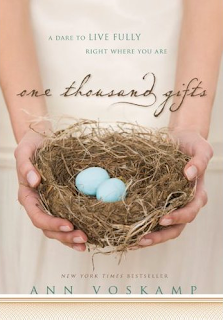
“Some people are uncoachable,” said the speaker, who was giving tips on mentoring others.
I nodded in agreement. I'd recently been thinking the same thing, and it was good to hear him affirm my thoughts.
Now, I've known for years that many people don’t want to be taught. But those aren't the ones he was referring to. He was talking about people who've actually come to you for advice and information.
The speaker said he tries very hard not to invest much time into a person who asks him a question and then doesn’t let him respond, or clearly ignores what he says, even if that person is offering to pay for his time. It's just not worth the frustration.
I totally agreed. Over the years, I’ve come across a number of people who, after coming to me for advice, clearly ignored my response. Oh, they may have let me get a few words out, but their body language and comments quickly led me to realize the question was simply an excuse for them to tell me what they thought was the right answer. I can only assume they wanted me to agree with them, and that was that. And when I didn't wholeheartedly agree, they wrote off everything I had to say. They weren't there to learn from me, but to get my affirmation for what they wanted to do, or maybe to impress me with their ideas.
It’s strange, really. I’ve never felt anyone has to ask for, accept, or act on my advice, but if they don’t even want to hear it, why waste my time by asking for it in the first place? Why not simply come and tell me what they think?
Let me give a fictitious example.
I find writers are some of the worst people for doing this. Especially new writers who have an idea (usually for a book).
So let's suppose I’ve just spoken to a crowd about some aspect of writing about your personal experiences. A person comes up and says to me, “I’m writing a book about my life. I was raised in a Christian home but I rebelled against God and my life was a mess. Then I became ill and prayed and God healed me. What do I need to do to get my book published?”
Over the years, I’ve come to realize that what most people asking this question want to hear is, “I know just the publisher for you! I’ll introduce you to the acquisitions editor, and I’m sure he'll be interested,” or “Just self-publish your book with X, and it will sell like wildfire.”
How likely is it that I’m going to say either of these things? 100% against. For starters, a good story is a dime a dozen. We all have at least one good story in us. But few of us know how to tell our story so well that others will take the time to read it, and fewer still know how to write with both creativity and excellence.
So my response is likely to contain titles of books they ought to read, joining The Word Guild, starting small with articles and stories and working up to a book, etc. Some people will listen and nod and ask great questions and go away with a few things to think about. Others will listen for a moment, but at the very first opportunity, they'll tell me they're going to go ahead and write the book their way and it will be a bestseller because God gave them the idea. Then they'll look at me as if daring me to disagree.
I used to waste my time and energy trying to help them understand the reality of the publishing industry. But eventually I learned it wasn't worth my time unless the other person was actually listening. Now, I just wish them good luck and move on to someone who actually wants my advice. It's so freeing to do that!
I used to feel that whenever I saw a need, it was up to me to try to meet that need. I always felt that I was the "responsible one." But I no longer feel that way. Maybe it has to do with getting older and realizing that my time is the most valuable thing I have, so I have to spend it very carefully.
And I also know that I have to stay coachable myself, because being uncoachable, or "having an unteachable spirit," as another person phrased it, is an all-too-common human characteristic, affecting everyone from the four-year-old who ignores her mother’s warning not to take the toy away from her baby brother, to the baseball player who won’t try his batting coach’s advice, to the doctor who won't listen to what the patient is trying to say. Any time we feel we feel we know everything we need to know about a topic, we’re in danger of becoming unteachable.
How do we avoid this?
By learning to set our own ideas aside for a time and listening with an open mind and a humble heart. We especially need to do this if we’ve asked someone for advice, if we’re talking to someone in authority over us or in a close relationship with us, or if we're with someone who might have first-hand insights into a topic we're learning.
If we assume we'll never know all there is to know about a subject, and go through life with teachable spirits, we’ll make new, amazing discoveries every day.
N. J. Lindquist is
a popular inspirational speaker and the award-winning author of five
coming-of-age novels for teens, two
adult mysteries set in Toronto, and a regular column in
Maranatha News, as well as the co-editor of
Hot Apple Cider. She blogs at
bluecollarwriter.com, offers advice for writers at
writewithexcellence.com, and tweets at
twitter.com/NJ_Lindquist















